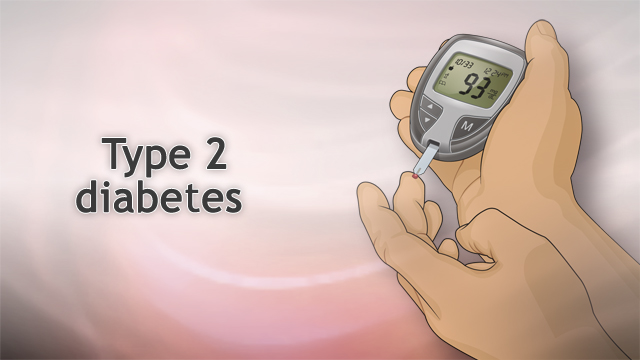Type 2 diabetes is a chronic condition characterized by elevated fasting glucose levels, which perplex many patients and researchers alike. This condition arises due to insulin resistance, leading the liver to produce excessive glucose. A recent review published in the journal Trends in Endocrinology & Metabolism sheds light on this phenomenon, revealing significant developments in understanding and potentially treating this widespread health issue.
The Rising Concern of Type 2 Diabetes: According to the World Health Organization (WHO), type 2 diabetes mellitus is one of the twenty-first century's pandemics, posing severe health risks worldwide. The condition leads to high circulating glucose levels due to a deficient insulin response, causing severe organ damage. It's alarming to note that a high percentage of people affected by this disease remain undiagnosed, emphasizing the need for enhanced awareness and research.
Key Insights from the Latest Research: The research, spearheaded by the UB Institute of Biomedicine (IBUB), Sant Joan de Deu Research Institute (IRSJD), and other esteemed institutions, has identified new factors controlling hepatic gluconeogenesis—the liver's glucose production pathway. This hyperactivated pathway in diabetes patients can be controlled by drugs like metformin. The study highlights growth differentiation factor (GDF15), which reduces proteins involved in hepatic gluconeogenesis, as a promising target for therapeutic intervention.
The Role of TGF-b in Diabetes Management: One crucial pathway highlighted in the study is the TGF-b pathway, involved in the progression of metabolic dysfunction-associated fatty liver disease (MASLD), often coexisting with type 2 diabetes. TGF-b significantly contributes to liver fibrosis and increased hepatic gluconeogenesis, making it a critical factor in managing glycaemic control in diabetic patients. Understanding and targeting the TGF-b pathway could lead to better therapeutic strategies.
Challenges and Future Directions in Treatment: While targeting single factors like TGF-b can be beneficial, it may not suffice to control type 2 diabetes effectively. Combination therapies considering various factors involved in gluconeogenesis regulation could offer a more comprehensive treatment approach. Molecules such as TGF-b, TOX3, and TOX4 have emerged as potential therapeutic targets, and their efficacy and safety will be pivotal in future treatment strategies.
A Multifaceted Approach to Diabetes Treatment: Metformin remains the most commonly prescribed drug for type 2 diabetes, primarily due to its ability to reduce hepatic gluconeogenesis. Recent discoveries have unveiled new mechanisms through which metformin operates. Contrary to previous beliefs, metformin inhibits complex IV of the mitochondrial electron transport chain, reducing the substrates needed for glucose synthesis. Additionally, metformin enhances glucose uptake and utilization in the gut, leading to changes that decrease hepatic glucose production. It also stimulates the secretion of GLP-1, a peptide that inhibits gluconeogenesis, contributing to its anti-diabetic effects.
The Impact of COVID-19 on Glucose Levels: Interestingly, the research also noted that COVID-19 patients often exhibited high glucose levels, related to the virus's ability to induce proteins involved in hepatic gluconeogenesis. This finding highlight the complex interplay between viral infections and glucose metabolism, warranting further investigation to enhance diabetes management, especially in the context of viral diseases.
Moving Forward in the Fight Against Type 2 Diabetes: The recent advancements in understanding the mechanisms behind elevated fasting glucose levels in type 2 diabetes offer new avenues for treatment. Targeting pathways like TGF-b and molecules like GDF15 can significantly improve glycaemic control. However, the complexity of gluconeogenesis regulation necessitates a multifactorial approach to treatment, integrating various therapeutic targets for better outcomes.
For individuals with type 2 diabetes, staying informed about these developments is crucial. Adopting a healthy lifestyle, managing weight, exercising regularly, and adhering to prescribed medications like metformin can help manage the condition effectively. Regular check-ups and monitoring are also vital to prevent complications and ensure optimal health.
Key Takeaways for Managing Type 2 Diabetes
1. Awareness and Early Diagnosis: Understanding the symptoms and risk factors of type 2 diabetes can lead to early diagnosis and treatment, preventing severe complications.
2. Targeting Key Pathways: Research highlights the importance of pathways like TGF-b in managing diabetes, offering new therapeutic targets.
3. Combination Therapies: A multifactorial approach considering various factors involved in gluconeogenesis can enhance treatment efficacy.
4. Role of Metformin: Metformin remains a cornerstone in diabetes treatment, with new insights into its multifaceted mechanisms of action.
5. Impact of COVID-19: The interplay between viral infections like COVID-19 and glucose metabolism necessitates further research for better management strategies.
6. Healthy Lifestyle: Maintaining a healthy lifestyle through diet, exercise, and regular medical check-ups is crucial for managing type 2 diabetes.
By staying informed and proactive, individuals with type 2 diabetes can manage their condition effectively and lead healthier lives. Continued research and advancements in understanding diabetes mechanisms will lead the way for more effective treatments and better health outcomes for millions worldwide

 Continued research and advancements in understanding diabetes mechanisms will lead the way for more effective treatments and better health outcomes for millions worldwide.
Continued research and advancements in understanding diabetes mechanisms will lead the way for more effective treatments and better health outcomes for millions worldwide.










.jpeg)

.jpeg)
.jpeg)

.jpeg)


.jpeg)



.jpeg)
.jpeg)
.jpeg)


.jpg)


.jpeg)
.jpeg)